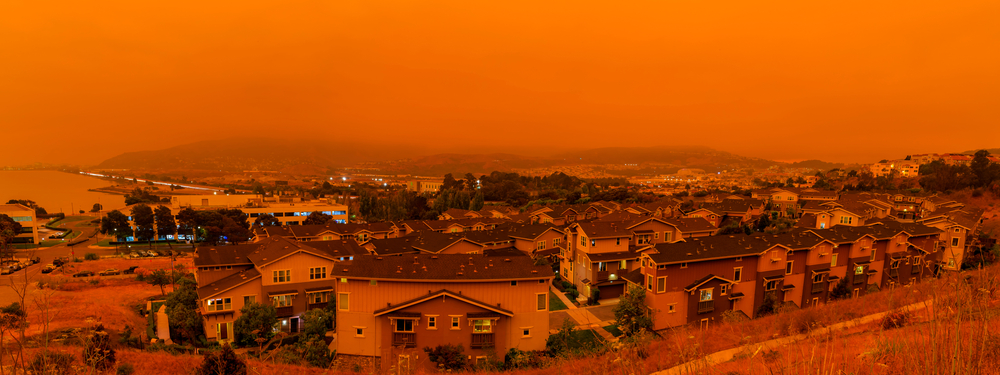California Homeowners Now Protected from Canceled Policies due to Fire Risk

Recently, the California Department of Insurance released a list of 518 zip codes within or adjacent to this year’s wildfires where insurance companies are no longer allowed to non-renew homeowners insurance policies or renters insurance for one year due to wildfire risk.
This list will protect about 2.1 million policyholders which translates into 18% of California’s residential market. The list covers zip codes in every Bay Area county there were in or near the Glass, Coyote or Woodward fires or the CZU, SCU or LNU lightning complex fires. San Francisco is not included on the list. Roughly, 97 of the zip codes fall into the Bay Area, with 26 in Sonoma County.
The moratorium list was released as many insurance companies are reducing their exposure to California due to the growing risk of wildfires. Insurers declined to renew policies for nearly a third more homeowners policies in California in 2019 than they did in 2018. In fact, in the 10 counties that have the highest exposure to wildfires, nonrenewals of policies jumped up 203 percent according to the Department of Insurance.
This announcement implements SB824, which took effect in January of 2019 and applies to any houses that were not destroyed in any ZIP code that were within or adjacent to the perimeter of a declared wildfire disaster. SB824 prohibits insurers from refusing to renew or cancelling the policies of homeowners in these types of areas, for one year. Insurers are stilled allowed to cancel policyholders for other reasons which can include nonpayment of premiums or willful or grossly negligent acts by the policyholder.
A separate law, SB894 covers homes that were actually destroyed by a wildfire or other disasters. This law requires insurers to make a renewal offer at least two times after the home is destroyed and this can be pushed up to three time if the policyholder experiences unavoidable delays in rebuilding.
The Department of Forestry and Fire Protection, working with the Office of Emergency Services came up with the final zip code list and Insurance Commissioner Ricardo Lara put the law into effect for the first time ever in December last year after the wildfires. At that time, it impacted at least 800,000 homeowners and roughly 364,000 of them are also included in this year’s list.
The law applies to all insurers writing policies in the state including unregulated ones, which are often called surplus lines carriers. The one-year mortarium on cancellations and non-renewals starts on the day that the governor declared an emergency for each particular zip code.
“So this means the earliest that someone included in the moratorium could be non-renewed is one year plus 75 days from the pertinent Governor’s emergency declaration, and the earliest that some could be canceled is one year plus 45 days,” department spokesman Michael Soller said in a recent San Francisco Chronicle article.
The American Property Casualty Insurance Association and Personal Insurance Federation of California recently issued a joint press release that said, “We anticipated a new moratorium on non-renewals would be triggered by the historic, destructive, and deadly 2020 wildfires. The effects of increasingly frequent wildfires include a significantly higher risk of homeowner property damage and we need to adapt to this new reality.”
The press release continued, “While changing the trajectory of climate change will take time, we need to take action now to make our communities more resilient and protect the lives and property of all Californians. This includes making sure homeowners have access to comprehensive insurance. It is important that we work together on solutions that increase insurance availability in high-fire risk areas and protect against insurer insolvency.”
